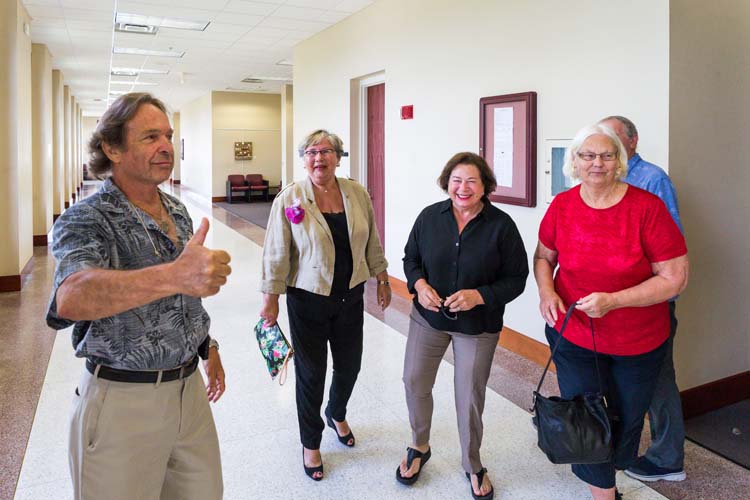A group of Polish Americans won a major battle in a long-running legal dispute Monday when an Indian River County judge ruled that a 2015 takeover of the old Polish-American Social Club was unauthorized.
The Hon. Paul Kanarek found that action by an insurgent board of directors that dissolved the old club and transferred its assets to a new Vero Beach Social Club violated the original club’s 2012 bylaws.
“The articles are clear: the dissolution of this corporation required the vote of the general membership and approval of the general membership,” he said. “If they didn’t have authority to dissolve the corporation, they didn’t have authority to distribute the property.”
Kanarek’s order comes two-and-a-half-years into the legal battle over the clubhouse on U.S. 1 near 39th Avenue and an estimated $1.25 million in assets once set aside to promote the culture and heritage of the Eastern European nation.
Following years of disagreement over club’s direction, the board of directors then in place formed a new corporation – the Vero Beach Social Club – in 2015. It then transferred the Polish-American Club’s assets to the new nonprofit and, without a vote by its membership, dissolved the original corporation.
Attorneys for the Polish faction argue this was unfair – that while the club’s bylaws left financial and business affairs to the board, major decisions were “subject to the approval of regular membership,” including any expenditures over $499.
“It is unreasonable and indeed nonsensical for an interpretation of the bylaws to provide that the same board that can’t spend $500, can simply give away 10 acres of property and a 5,000-square-foot clubhouse,” argued attorney Casey Walker on behalf of the Polish members.
“We are not here today asking the court to determine why this was done, whether this was a thoughtful and nuanced response to changing demographic and economic conditions, or whether it was just a brazen theft.
“All we’re asking the court to do is to construe the bylaws in such a way as to decide that, ‘Yes, membership had the right to approve or disapprove of the board’s action.’”
The resolution of this specific legal question will chart a pathway for this case to finally move forward, he said.
Members of the Polish-American Social Club filed their first civil complaint in October 2015, not long after the board dissolved their club.
Around that time membership and revenue from social events like dinners and dances was shrinking. There were some 750 participants in 2007 to just 325 by 2015. Between 2014 and 2015 alone, revenue dropped nearly $40,000.
The board of directors thought it could grow the club by expanding cultural offerings. Polka dances turned into Salsa night, and the perogies and potato pancakes were replaced by meat loaf and lasagna. A newsletter soon boasted, “You don’t have to be Polish to join this club.”
Meetings became so tense the police had to be called, said Lynne Hampton, an attorney for the Vero Beach Social Club. The premise was picketed. There were threats of violence. This type of emergency, out of the ordinary situation, called for a different interpretation of the bylaws, according to Hampton.
The governing body sought the help of its legal counsel when deciding what to do, she said. The club “was about to go under.”
The board had no choice but to take the action it did, added board attorney Katie Merwin. Attendance had gotten so low there wasn’t even a quorum. “We were in a state of disarray,” she said.
Such isn’t the case today, said Polish Club President Jerry Cygler as Polish Club members celebrated outside the courthouse chambers. Membership is at 170 people, even with the club operating in exile, he said.
A new, younger generation is interested in continuing this fight and building a group to benefit the community, added Cygler. A Polka dance held at The Moose lodge Sunday night attracted nearly 100 attendees.
“Finally, the judge is listening to the people,” Cygler said. “He’s listening. It’s good. It’s a good feeling.”
In the wake of Monday’s ruling of partial summary judgement in favor of the Polish Club, the club can file additional petitions with the court seeking to regain control of the U.S. 1 property and other assets.

